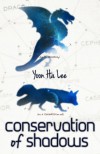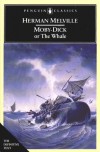Currently reading
A Bloody Field by Shrewsbury by Edith Pargeter

Or, A Tale of Too Many Henrys
I’d been wanting to read this one for a while now, but had never gotten around to it, so I was pleased when it was chosen as June 2016’s book by the “More Historical than Fiction” bookclub here at booklikes. Before this, I had only ever read some of the Cadfael books that Edith Pargeter wrote under the pseudonym Ellis Peters.
Basically, I really liked it. I haven’t read much concerning that exact time period and the battle at Shrewsbury, and I avoided looking up the history while reading the book to keep it sounding fresh, so I won’t comment on the historical accuracy. I both don’t know what to say about it and want to somehow talk about it, so we’ll see how long this ramble gets.
The story follows the events leading up to Shrewsbury over the course of several years and the relationships between the three Henrys: King Henry IV, the prince Hal, and Henry Percy (Hotspur). It particularly follows the devolution of the king and the disintegration of his relationship with Hotspur (I was going to mention Hal here too but Henry never really had a relationship with Hal, which was another great thing about the book).
I rather liked Julian. Although tangential to the main plot, her character helped flesh out the world for me by actually having a female character that isn’t one of the wives mentioned in passing and without sacrificing historical accuracy. She’s entirely a woman of her time, but she also shows that women could and did play a role in events. Besides, through Julian we’re introduced to the Welsh side of things, and I quite liked her father, Rhodri Parry.
I didn’t need Julian to be there, but I also thought she gave depth to the other characters, first by showcasing Hal as young but capable judge (yes, he has Hotspur’s help but we see he’s trusted to make his own decisions) and later with her relationship with Hotspur. The beginning of the book would have been drier and there would have been more “telling” without her, I think. Or some of the characters would have been flatter.
I think it would be a mistake to call that relationship with Hotspur a romance. It was both less and more than that. Yes, she loved him, but not romantically (at least, that’s not how I read it). He was the man who gave her back her life (as well as provided her the opportunity to make her own life), and so she greatly admired everything about him. In fact, their relationship was similar to the one that Hotspur had with Hal. She also gave Hotspur the chance to add yet another layer of awesomeness for the modern reader by having him accept her as her own person and treat her as an equal. I mean, some of it could come off as a little patronizing, but I’m not choosing to see it that way. He saw her as a daughter, basically.
I don’t think Hotspur achieves the level of awesomeness of prince Hal, however. Prince Hal was probably my favourite character. Really, Hal at sixteen is more of an adult than most adults ever achieve. He was always so self-possessed that his father basically treated him like an alien creature and actually raced to Shrewsbury not so much to defend him but because Henry couldn’t trust Hal not to betray him. He was afraid Hal’s loyalty to Hotspur would trump his filial loyalty. Of course, that probably says more about Henry and his state of mind than Hal. It exemplifies the kind of brokenness you see in his character as the story progresses. There’s also a theme of finding choices to make versus letting events make your choices for you scattered throughout, but it’s explicitly called out in the epilogue.
Finally, I was quite happy to encounter a not-an-idiot love interest in Iago (for Julian). Especially while reading Venetia (Heyer) and having to deal with Oswald, Edward, and Damerel.
Sorry if that was a bit too long; I’m a known rambler. If you have a chance and you're interested in historical fiction, you should check this one out!














 11
11
 4
4
